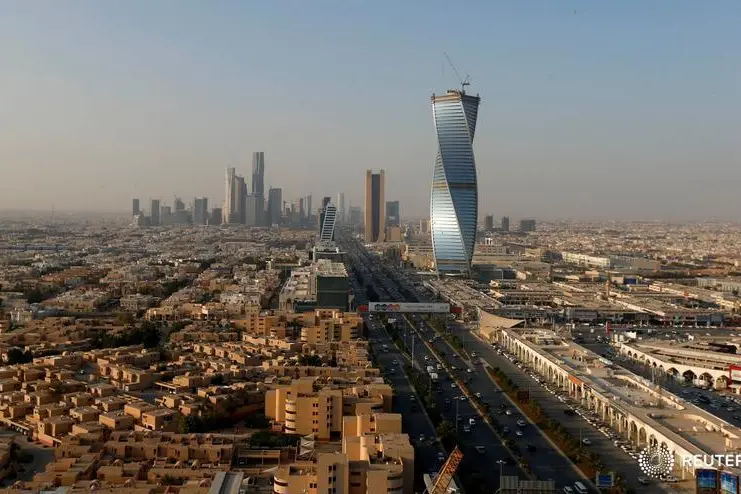PHOTO
LONDON - Saudi Arabia stands to collect an “infrastructure dividend” worth billions as it pushes ahead with its diversification drive, powered by a localization program involving partnerships between KSA enterprises and overseas firms to ensure wealth cascades down to the wider population, say experts.
Dr. Raed Kombargi, an Abu Dhabi-based partner with consultancy Strategy&, told Arab News that KSA should be able to provide goods and services for its local market as well as build globally competitive export industries. “The dividend is certainly there and I am confident they can do it,” he said.
Kombargi said the purpose of localization was, on one level, to stimulate the economy by creating a lot of jobs. But it was also about having an impact on GDP.
“If you are focused only on the local market and local demand, you will get to a certain level but you won’t get the ‘big bang’ that you are looking for,” he said. “To take full advantage of local content, home-produced goods should, in the medium term, become globally competitive, so that you are not just manufacturing, for instance, solar panels or solar components to install in KSA, but also to export regionally and beyond. That’s how you maximize local content.”
A report from Strategy& published last week estimated that Saudi Arabia was likely to spend $1.1 trillion on infrastructure projects from 2019-2038. The report looked at infrastructure spending worldwide for the next 20 years and found that Saudi Aramco was targeting 70 percent localization by 2021 as part of its In-Kingdom Total Value Add (IKTVA) program, which favors local content during the procurement process and makes localization a key condition that encompasses all its commercial arrangements.
Looking ahead, the report noted that large development schemes were being set up in a way that would allow local companies to substitute imports, and to grow non-oil exports by building an industrial base to create export potential.
Monica Malik, of Abu Dhabi Commercial Bank, said: “You have had strong population growth and you need to upgrade infrastructure, including providing services such as health, education and housing. The requirements and objectives are very broad, as is the potential.”
Turning to construction, she said that if momentum builds up, “You will need foreign construction firms to come in and work with Saudi developers, to help with the requirements on the ground. There has been a bottleneck in the past, often the ability to get contractors in has — at times of growth — not been at the pace required.”
Asked how successful he thought KSA would be in localizing content in the building of new cities such as Neom and other mega projects, Kombargi said: “I think they can. Nigeria did it, and before them Brazil did it, and there is no reason why KSA cannot do it.
“There is a new generation of highly educated Saudis, very responsible about the future of the country, and extremely savvy about what makes sense economically and what doesn’t,” he said.
But Kombargi thought KSA and others should do things slowly, building up supply chains and being aware of strengths and weaknesses with regard to the supply base.
The report said that many governments in developing economies have a sense of urgency that can lead to short-sighted and counterproductive policies. Specifically, there were biases that can interfere with robust, fact-based analysis and policy design. There were times when policy-makers overestimated the localization potential from a given product category, failing to factor in the huge disparities in sizes, designs, and costs of goods in that category.
Ross Teversen, of London-based Jupiter Asset Management, said that KSA seemed to be taking cues from China’s fixed asset investment model “by investing in infrastructure projects to remove bottlenecks to economic growth.”
He pointed to the high-speed Haramain train service that will link Madinah and Makkah to the King Abdullah Economic City (KAEC) on the west coast and Jeddah’s King Abdulaziz International Airport, and the new Riyadh metro system as examples of key infrastructure investments that were “transforming the Kingdom.”
Copyright: Arab News © 2018 All rights reserved. Provided by SyndiGate Media Inc. (Syndigate.info).
Disclaimer: The content of this article is syndicated or provided to this website from an external third party provider. We are not responsible for, and do not control, such external websites, entities, applications or media publishers. The body of the text is provided on an “as is” and “as available” basis and has not been edited in any way. Neither we nor our affiliates guarantee the accuracy of or endorse the views or opinions expressed in this article. Read our full disclaimer policy here.
© Arab News 2018





















